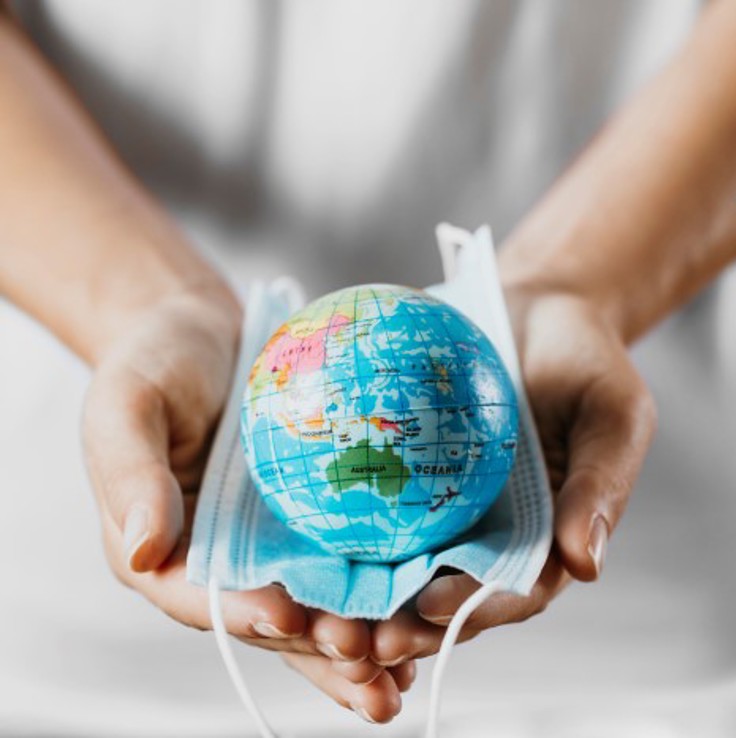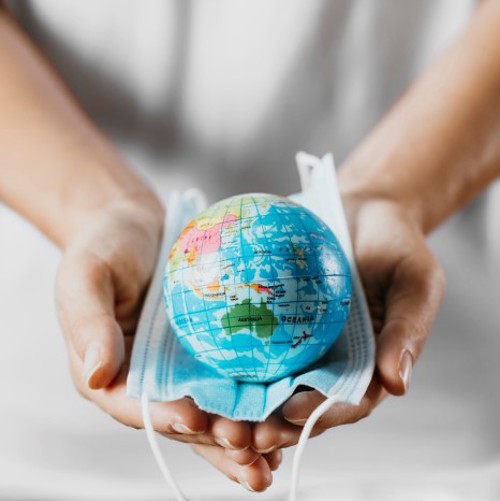Health Security at the Norwegian Institute of Public Health
Article
|Published
Health security at the Norwegian Institute of Public Health (NIPH) is both national and global at the same time. By contributing to better health globally we can also analyse how developments internationally will affect health in Norway.
COVID-19 has underscored the significance of having a robust foundation for the global collaboration. There is no single country who could have prevented, mitigated, or combatted the pandemic independently. Microbes do not recognise borders. In today’s globalised world, emerging diseases are inevitable unless the global community is determined to enhance its collective health security.
The World Health Organisation defines Global Public Health Security as the activities required, both proactive and reactive, to minimize the danger and impact of acute public health events that endanger people’s health across geographical regions and international boundaries. Considering the current sphere of endless challenges; globalisation, urbanisation, overpopulation, ecosystem deterioration, Anti-Microbial Resistance (AMR) and climate change, the hazard of emerging new outbreaks as COVID-19 is constantly mounting. The ongoing COVID-19 pandemic has underlined how global health security is a fundamental prerequisite to solidify and shield the hard-earned health gains.
The need for a resilient global health security system is paramount. An efficient health security system equipped to prevent, detect, and swiftly respond to public health threats irrespective to its nature; AMR, zoonoses, chemical, nuclear, or climate induced. Having a robust national preparedness system is indispensable to mitigate these threats within a country and across borders. A system capable of vigilant surveillance, vigorous laboratory, and immunisation activities; and able to engage with and shield healthcare professionals, generate evidence-based policy and guidance on various administrative level; and proactive enough to coordinate, communicate and lead all of the society.
Health security in NIPHs strategy
The short version of the strategic vision of the Norwegian Institute of Public Health (NIPH) is ‘Longer Lives, Better Lives and more Equitable Living Conditions’ nationally and globally. Being active in global public health does not only benefit the world at large, but also Norway. To meet the opportunities and challenges of the coming years, NIPH has structured its mandate and purpose into three core tasks and has defined nine strategic initiatives within the core tasks. Just as health security is both global and national at the same time, it is also deeply embedded in the three core tasks in the strategy – even if one of the core tasks is Preparedness. Health security is also embedded in the institute’s nine strategic initiatives.
The three core tasks are:
- Knowledge – more, better, and faster knowledge produced for health and sustainable health services.
- Preparedness – new solutions to protect life and health
- Infrastructure – health data, laboratories, and services for the future
The nine strategic initiatives are:
- Strong in crisis – to be trustworthy advisers during crises and have leading expertise in crisis management
- Health data in real time – to shorten the time from health data to analyses beneficial for society
- The open Institute – communication will be open, inclusive, and easily accessible
- Measures that are effective – show which measures that give most health gain for money, and which reduce inequalities
- Health and care services for the future – lay the foundation for designing of health and care services of the future
- Large societal changes – strengthen society's ability to solve new, complex challenges
- Predict health threats –leading in the use of big data, machine learning and modelling in public health
- Climate change and health – take a new role in questions regarding climate, environment, food, and health
- Norway in the world –contribute to better health globally and analyse how developments internationally will affect health in Norway
The COVID-19 pandemic has clearly shown how each of the three core tasks and nine strategic initiatives are important for health security nationally and globally.
Projects, collaborations, and activities
Below we list some projects, ongoing activities and collaborations that are examples of NIPH’s work in national and global health security.
Global Health Preparedness Programme
The Global health preparedness programme has represented the Norwegian vision of fostering the global adoption of and conformity to the International Health Regulations (2005). By establishing pioneer twining partnership in four countries; Ghana, Moldova, Palestine, Malawi and the WHO, the Norwegian Institute of Public Health (NIPH) has achieved milestones in strengthening the global health security.
International Health Regulations (IHR)
- NIPH engages with other global stakeholders to capitalise on the International Health Regulations (2005).
- NIPH is actively engaging with the development process of a global pandemic treaty.
Global Health Security Agenda (GHSA)
The NIPH contributes to the three action packages of the GHSA:
- Surveillance
- Anti-microbial resistance
- Sustainable financing
Centre for Anti-Microbial Resistance (AMR)
- Scope: AMR-related activities and projects
Surveillance activities
- NIPH contributes to developing surveillance systems for health security in other countries.
IPCs activities
- Scope: elated to the global activities of the NIPH
Biological Preparedness
- Scope: Biological threats related to NIPH’s health security activities
Chemical Preparedness
- Scope: Chemical events or toxins related to NIPH’s activities

